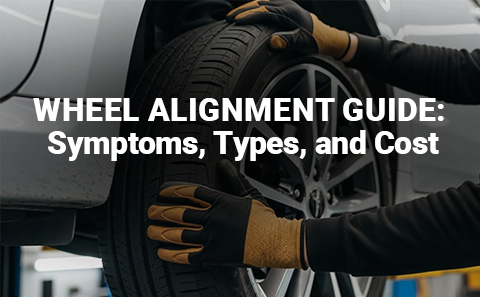Shipping is free for all orders | 90 Days money back guarantee
Shipping is free for all orders
IF and VF Agricultural Tires
Agota Szabo - June 18, 2019
With the heavier and more aggressive agricultural vehicles, tire manufacturers must step up their game to keep up with the innovations. The same sized tractor tires must withstand much heavier loads than they did 40 years ago, which can cause discomfort, higher fuel consumption and even field compaction.
In the early 2000s, Michelin was the first to introduce IF and VF tires to the market and since then, many manufacturers have followed this road.
But what are IF and VF tires exactly?
Table of Contents:
IF and VF Technology
IF stands for increased flexion, while VF means very high flexion.
Tires manufactured with these technologies are made with sturdier sidewalls, that help carry the weight of the vehicle and its load. Regular radial tires completely rely on their air pressure to transport and handle the loads, but IF and VF tires do that with the reinforced and detailed steel belt construction of their casing and sidewalls.
As a result, these tires can carry heavier loads or the same loads at lower inflation than regular radial tires.
IF tires are able to carry 20% more load or the same load weight at 20% less inflation, while the sturdier VF tires handle 40% more load or the same load as a radial tire at 40% less air pressure.
What are the Benefits?
The lowered air pressure increases the tire’s surface contact area. IF and VF tires guarantee a larger footprint that keeps its uniformity even with lowered air pressure. This increases the tire’s flotation and traction, which manages to improve the vehicle’s fuel efficiency and even tread wear rate, and even combats field compaction.
The more PSI a tire has, the heavier its contact with the field surface becomes. PSI stands for pounds per square inch, which is the weight a tire inflicts on the road or terrain surface it is performing on. With tractors and other agricultural vehicles, it is important to allow the tires to function without leaving marks on the field, which not only damages the crop, but it can also ruin the soil quality. IF and VF tires can perform with lower PSI in the same manner as regular radial tires do. This lowers the weight affecting the field surface and decreases the possibility of field compaction.
Agricultural tires benefit from reduced air pressure. The larger footprint this creates improves the tire’s high flotation capability and traction. The tread’s lugs increase their grip on the terrain surface and ensure the tire’s forward motion even in deep mud and loose dirt. They do this without, as mentioned before, damaging the crop or soil they are driving on.
As agricultural tires have better traction and grip with lowered air pressures, IF and VF tires manage to decrease the tractor’s fuel consumption. The upgraded traction and flotation ease the driving pressure off the tire and decrease the rolling resistance, which in turn reduces the vehicle’s fuel consumption. The lowered fuel intake ensures a fuel efficient and environmentally conscious performance.
A Slight Problem
The benefits of IF and VF tires are listed above. However, before buying such tires, you must consider one thing.
The performance of IF and VF tires depends on the correct PSI or tire air pressure. These tires must be checked regularly to optimize their PSI, for it to accommodate the vehicle they are mounted on and that vehicle’s intended purpose.
Incorrect inflation can lead to the vehicle’s road lope (the vehicle’s swaying during the on-road performance, without pulling any load) and power hop (the front of the vehicle’s bouncing as it starts to pull heavy loads on softer soil). To prevent these issues and to benefit from the tires’ IF and VF technology, you need to maintain the correct PSI in the tires at all times.
Related Posts
















